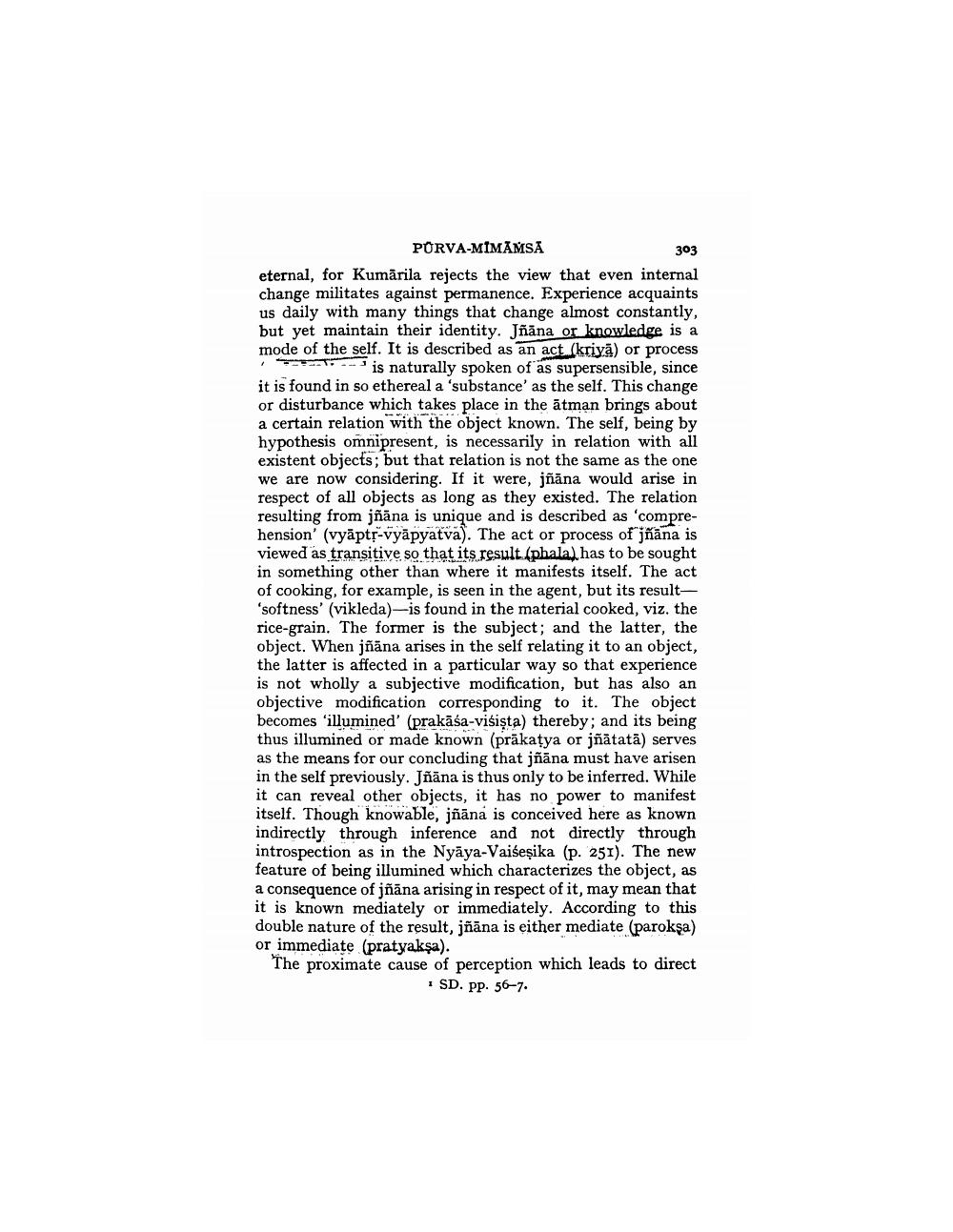________________
PORVA-MIMĀMSA
303 eternal, for Kumärila rejects the view that even internal change militates against permanence. Experience acquaints us daily with many things that change almost constantly, but yet maintain their identity. Jñana or knowledge is a mode of the self. It is described as an act (kriya) or process
is naturally spoken of as supersensible, since it is found in so ethereal a 'substance' as the self. This change or disturbance which takes place in the atman brings about a certain relation with the object known. The self, being by hypothesis omnipresent, is necessarily in relation with all existent objects, but that relation is not the same as the one we are now considering. If it were, jñāna would arise in respect of all objects as long as they existed. The relation resulting from jñāna is unique and is described as 'comprehension' (vyāptr-vyāpyatva). The act or process of"jñāna is viewed as transitive so that its result. (phala) has to be sought in something other than where it manifests itself. The act of cooking, for example, is seen in the agent, but its result
softness' (vikleda)-is found in the material cooked, viz. the rice-grain. The former is the subject, and the latter, the object. When jñāna arises in the self relating it to an object, the latter is affected in a particular way so that experience is not wholly a subjective modification, but has also an objective modification corresponding to it. The object becomes 'illumined' (prakāśa-visista) thereby; and its being thus illumined or made known (prākațya or jñātatā) serves as the means for our concluding that jñāna must have arisen in the self previously. Jñāna is thus only to be inferred. While it can reveal other objects, it has no power to manifest itself. Though knowable, jñāna is conceived here as known indirectly through inference and not directly through introspection as in the Nyāya-Vai esika (p. 251). The new feature of being illumined which characterizes the object, as a consequence of jñāna arising in respect of it, may mean that it is known mediately or immediately. According to this double nature of the result, jñāna is either mediate (paroksa) or immediate (pratyakşa). The proximate cause of perception which leads to direct
· SD. PP. 56-7.




